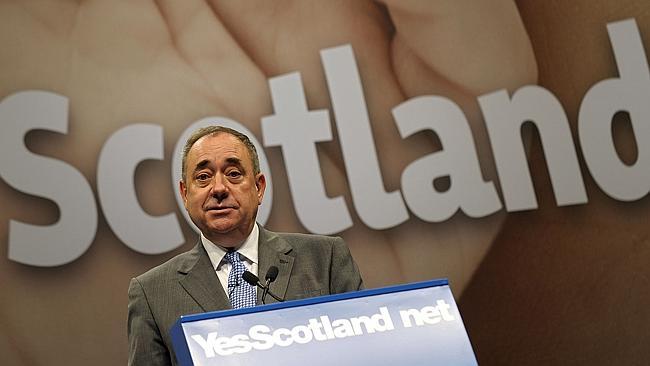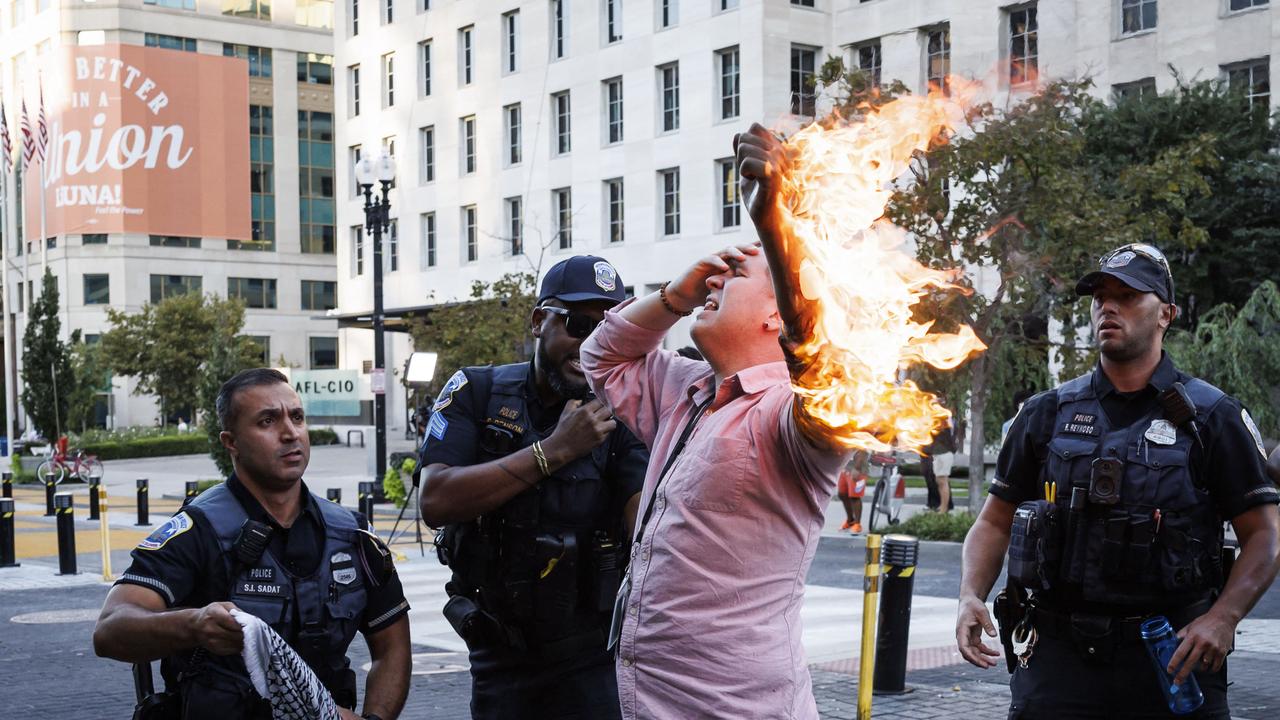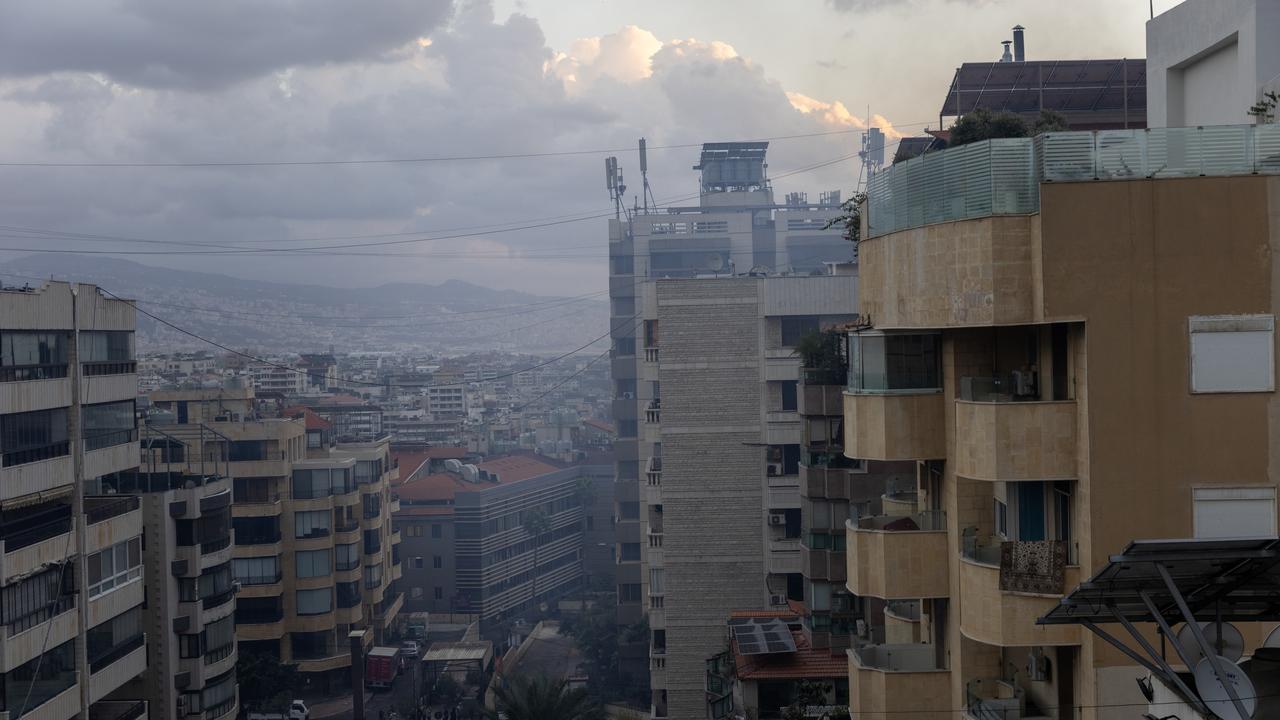Westminster rides the No-commotion express
WHEN the Scottish flag was ordered to be hoisted high above Westminster, it collapsed in a heap of blue and white material.

WHEN the Scottish flag, the Saltire, was ordered to be hoisted high above Westminster in a rare and unexpected sign of solidarity from Prime Minister David Cameron, it collapsed in a heap of blue and white material.
Alex Salmond, Scotland’s First Minister, might interpret that fumbling and difficulty of hoisting the distinctive flag over the Thames on Monday as a telling metaphor for the British government’s views on Scotland.
As the rhetoric from both sides ratchets up to unprecedented levels on the eve of Thursday’s referendum vote, Salmond has accused the established political leaders of colluding in an orchestrated campaign of panic, bullying and intimidation.
Mr Salmond said: “Scotland is on the cusp of making history. The eyes of the world are upon Scotland. And what the world is seeing is an articulate, peaceful, energised debate.
“Scotland will vote ‘yes’ next Thursday and they will vote ‘Yes’ because last-minute, cobbled-up promises from the ‘no’ campaign which unravel at the slightest scrutiny will not fool anyone in this country and neither will the blatant bullying and intimidation of the Westminster government.’’
Certainly the Scottish people — no matter their voting intentions — are bemused at the patronising way in which an entire parliament south of the border has suddenly discovered that within days the northern part of the United Kingdom might be lost at the stroke of a pen.
Within hours of a poll early this week showing momentum for the ‘yes’ camp above the 50 per cent line, the three major party leaders had cancelled Prime Minister’s questions time and boarded the “No-commotion’’, the fast train from London’s Euston station to Edinburgh. Belatedly, but possibly effectively, hundreds of faceless Labour backbenchers were waving, and kissing babies in a northern backyard they really, truly want to keep as their own.
Within hours, the three major parties had all re-announced vague devolution plans to hand more power to the Scottish parliament if the “no” vote, to remain in the United Kingdom, gets up, committing to a timetable of implementation. But with each of the parties varying in their commitment to how much the Scottish parliament might end up controlling, the detail has been lost in the shouting confusion that has engulfed the final days.
This week one thing was clear: despite deep-seated differences, Cameron was united with Labour leader Ed Miliband, for their political futures are very much at stake when the 4.28 million registered Scots answer the simple independence question.
Cameron is unlikely to survive if, under his watch, the United Kingdom is broken. A “yes” vote will lose Miliband Labour’s heartland too, and his party would be unlikely to mount any serious opposition to an outright Conservative victory at next year’s general election.
In these final days, the establishment and well-connected business leaders have come out en masse to warn of dire consequences of voting “yes”.
Such has been the ferocity of the London-led fear campaign there is fear about a mortgage meltdown, pension cuts, house price fluctuations, food price inflation and job losses. Money is flowing out of Edinburgh, claims the influential politician George Galloway. The Royal Bank of Scotland might move its registered office to London, warns one of the high-profile banks.
Newspapers have published illustrations of new border controls for traffic at Carlisle; the BBC has suddenly put its Scottish presenters on prime time.
Four banks based in Scotland yesterday indicated they would move their registered headquarters south and retailers were speaking out about rising costs in Scotland.
Bank of England governor Mark Carney warned again that an independent Scotland would need huge reserves if it tried to continue using sterling.
“Why are they doing it now? There is a strong whiff of orchestration of Number 10, which leaves a bitter taste in the mouth,’’ said BBC Scotland journalist Kevin McKenna.
All of this has heightened the established views of those who have made up their minds and created greater confusion for the 14 per cent who haven’t.
Latest polls indicate the “no” voters have regathered their long-held lead after a brief “yes” blip, but the vote is too close to call and the voter turnout for the voluntary voting will be critical.
For nearly two years, the “yes” campaign has been lobbying effectively, with large numbers of supporters on the ground canvassing, while the Better Together campaign has continued to be negative and focused on what Scotland will lose rather than on the huge benefits Westminster can offer. This month Scottish households were letterboxed with a 12-page “yes” guide to independence, claiming Scotland had generated more tax per head than the UK for each of the past 33 years. Scrapping the Trident submarine program would save $1 billion and tailoring economic policy directly to suit Scottish needs would create new jobs.
The “no” campaign focused its headlines about serious business concerns, the currency, and the fear Scottish taxpayers would have to outlay billions for state pensions.
The Weekend Australian found overwhelming “yes” support for independence in Glasgow and in the southern Hebrides.
Along the streets on the Isle of Bhute, the Saltire was not only fluttering in the breeze, it was also pasted across most shop windows. Polls have indicated that the Scots are split over a post-independence currency and the longevity of North Sea oil. Voters in the Labour areas of central and west Scotland have indicated strong support for independence, but teenage voters and the elderly have proclivity for the Union.
Ultimately the decision will be an emotional one. Will the Scots lose their bravado when it comes to ticking “yes”, or will they be happy enough to get a pocketmoney handout from Westminster?
By next Saturday we should know the answer.



